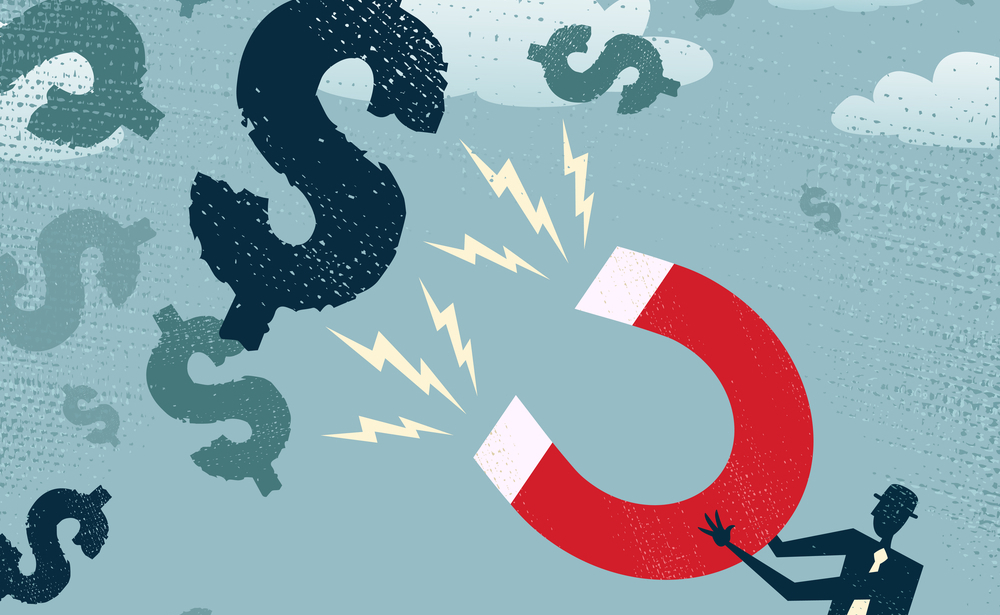Venture capitalism is the investing of money in unproven startup companies.
A successful venture capitalist has the ability to recognize one epic idea among a hundred good ones and a thousand terrible ones. While the selection process requires a lot of luck and can be almost compared to gambling, it can be made a lot safer if you take the right precautions.
Timing is everything. If you travelled to the past and had the opportunity to invest in Microsoft when it was still a startup, you’d be crazy if you didn’t. If you bought 100 shares at $21 each back in 1985, you’d turn $2100 into over $750,000 – a growth of over 35,000 percent. This is the dream for venture capitalists.
Are you willing to make a big investment in someone else’s dream? If you make the right call, you could be the next Bill Gates. If not, you’ll join the ranks of countless others who lose big on the venture capital lottery.

Statistics are disputed, but the most sources agree that around 75 percent of startups fail. The 25 per cent that succeed all have things in common that can be identified before anything is invested. Defending against bad investments and identifying common traits of past successes is all part of the due-diligence procedure that helps you steer clear of that wide 75 percent trap.
Be the 25 percent. In Atul Gawande’s The Checklist Manifesto, a surgeon and researcher interviews a group of successful venture capitalists to find out how it’s done. Unsurprisingly, the secret is no more complex than a checklist. I’d like to think that a good checklist can avoid almost 100 percent of human error – the information is out there, it just needs to be applied properly, in a way that eliminates the oh-so-common issue of fallibility. We’re all human, after all.
Learn why startups fail so often
CNInsights.com: The 20 Reasons Startups Fail
Thankfully for researchers, entrepreneurs are generally honest about their failure. Examining 101 Startup Post-Mortems, CNInsights.com aggregated the data to summarize the 20 most popular reasons for failure.

As reported in Forbes, many startups fail because they make a product no one actually wants. The majority of businesses are started to satisfy the needs of the entrepreneur and don’t take widespread appeal into consideration.
In Richard E. Gerber’s book, E-Myth, he theorizes that most entrepreneurs think they can get by with just doing the technical work (programming, baking, writing) and don’t realize they need to be managers and entrepreneurs, all in equal doses.
A large crowd-sourced pool of data published by . using answers from IncQuora reports that market saturation is one of the biggest issues. There are more failed products in the world now than ever before because startups try to be 0.5% of a 50 billion dollar market instead of 50% of a 100 million dollar market.
Entrepreneur criticizes the majority of startups for their business plans, claiming they rely on a black box labelled ‘???’ in the space between ‘idea’ and ‘success’.
Read 101 Startup Post-Mortems and hear straight from the founders how it all went wrong.
How can we identify future failures?

Simply put, due-diligence in venture capitalism is doing enough research and preparation to avoid investing in a startup that is doomed to fail. Stay on the safer side of one of the riskier practices in business with this comprehensive checklist.
Step One – Filter out the terrible products:
Investing in great companies means giving entrepreneurs the means to meet an urgent need their potential customers have. If a product is useless, no one will buy it. It’s as simple as that.
“Investors want to invest in great products and services with a competitive edge that is long lasting. They look for a solution to a real, burning problem that hasn’t been solved before by other companies in the marketplace. They look for products and services that customers can’t do without – because it’s so much better or because it’s so much cheaper than anything else in the market.” – Ben McClure
The first step of due diligence is to filter out almost every idea you see until you find one that meets the critieria for success.
Specific product details

Gather as much information about a product as you can. Find out who owns it, see if there’s a prototype or pre-beta release. Record the details of the most attractive product in the form fields below.
StartupLi.st provides information about the product as well as links to the founder’s Twitter, Facebook, LinkedIn and more.
Angel.co goes a step further, providing onsite bios and information about everyone involved in the project so far, also the number of applicants and other data that gives a good indication of how popular the product is.
OneVestprovides information about startups including funding goals and progress, current customers patent status and more.
Kickstarteris a great place to get in on the ground level with new innovations. While firms are using the platform to seed their idea through customer pledges, the founders can be contacted through the site with investment proposals.


